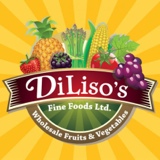Title Page
RECEIVING & SHIPPING
-
Why:
Potentially Hazardous Foods (PHFs) need to be delivered at the proper temperature so that bacteria can’t multiply. Damaged packaging may be a sign that food is contaminated. Labels will identify food sources and ingredients. Food stored properly will prevent cross- contamination, and keep bacteria from multiplying.
Check that:
The receiving area is clean.
The delivery vehicle is clean & there are no chemicals transported with the food.
Frozen foods are frozen solid, and do not show evidence of thawing and refreezing.
(Common signs of thawing and refreezing are large ice crystals on the surface, and frozen juices or liquids in the package.)
Take temperature of PHF with clean calibrated thermometer. Cold foods must be less than 4°C. Hot deliveries need to be greater than 60°C.
Food doesn’t show signs of spoilage.
Product packaging is not damaged exposing food to contamination.
Cans do not bulge, leak, or have creased seams.
There are no insects, insect eggs, dirt, rodent droppings, or other contaminants.
All products are properly labeled with the name and address of the manufacturer, and
the ingredient statement.
Food is stored properly as soon as possible. Protect Ready-to-Eat foods from raw
foods. Store raw foods under Ready-to-Eat foods, and separate from raw foods.
All products are within their “use-by” date
RECEIVING
-
Receiving
-
Employee Name
-
Scan Invoice/Bill of Lading
-
Deliveries are Received at non-peak times, not left on dock?
-
Food items are from Approved Source
-
Loading Dock Sanitation Condition
-
Sanitation of Trucks Checked
-
Temperature of Delivery Vehicle recorded
-
Food Deliveries are kept at 6 inches off Floor
-
Food is Inspected before storing
-
Enter Food Product 1
-
Enter Food Product 2
-
Enter Food Product 3
-
Evidence of Cross Contamination
-
Pallets are Properly Labelled and Dated
-
Pallets Observed for Cleanliness and potential for cross contamination.
-
Date & Time
-
Name & Signature
SHIPPING
-
Shipping
-
Scan Invoice/Bill of Lading
-
Loading Dock Sanitation Condition
-
Evidence of Cross Contamination
-
Sanitation of delivery vehicle
-
Pallets are Properly Labelled and Dated
-
Food is Inspected before being unloaded
-
Temperature of Delivery Vehicle recorded
-
Enter Food Product 1
-
Enter Food Product 2
-
Enter Food Product 3
-
Date & Time
-
Name & Signature of Delivery Driver
-
Name & Signature of Receiver
REJECTION OF GOODS
-
Incident
-
Rejection Incident (list products rejected & invoice #)
-
Give the Reason for rejection
-
Date & Time
-
Name & Signature
RECALLS
-
Enter Date and Time
-
Employee Name Completing This Log
Recalled Raw Ingredients (Initiated by a Supplier)
-
Name of Supplier Issuing Recall
-
List Ingredients & Lot #'s, PLU #'s, or Idetifier
-
Reason for Supplier Recall
-
What is the Recall Level (per CFIA)
- Level 1
- Level 2
- Level 3
-
List Quantity(s) of Recalled Product Received
-
List Quantity(s) of Recalled Product On-Hand
Recalled Final Product (Initiated by You)
-
List Ingredients & Lot #'s, PLU #'s, or Idetifier
-
Reason for Supplier Recall
-
What is the Recall Level (per CFIA)
- Level 1
- Level 2
- Level 3
-
List Quantity(s) of Product Affected
-
List Quantity(s) of Recalled Product On-Hand
Communication of Recall
-
Recall Team Notified
-
CFIA Notified
-
Affected Customers Notified
-
Press Release Issued
Disposition
-
Affected Product Segregated
-
Enter Disposition Plan
-
Employee Signature
-
Supervisor Name
-
Supervisor Signature
Signatures
-
Supervisor name & signature














